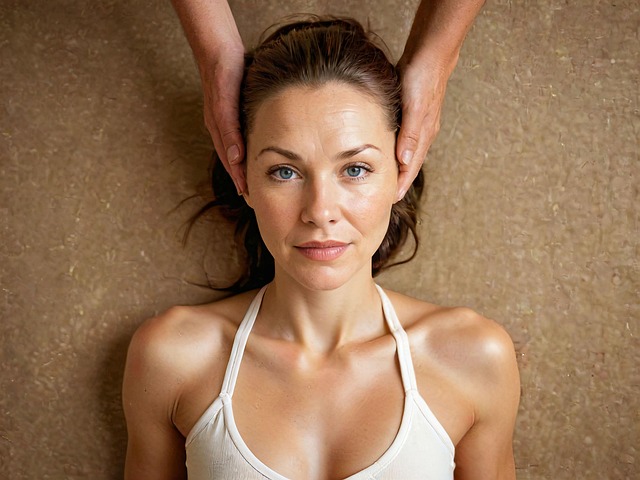Cold water therapy, like ice baths or cold showers, triggers the release of stress hormones, stimulates brown fat production, and boosts metabolism. Combined with targeted breathwork, it balances hormone levels, reduces stress, and promotes relaxation. This synergistic approach supports endocrine health, enhances well-being, and improves energy, mood regulation, and overall health by leveraging both cold exposure and controlled breathing. Incorporate short cold plunges (50-60°F) and daily breathwork exercises for optimal hormone balance and increased vitality.
“Unleash your body’s natural healing power by combining ancient practices: cold water therapy and breathwork. This powerful duo offers a unique approach to endocrine support, promoting overall health and balance.
‘Cold Water Therapy for Hormones’ explores the science behind these techniques and their profound effects on the endocrine system. Learn how deep breathing and icy immersions work synergistically to regulate hormones, boost metabolism, and reduce stress. Discover practical tips to integrate these practices into your routine for a holistic transformation.”
Understanding Cold Water Therapy and Its Impact on the Endocrine System
Cold water therapy, also known as cold plunging, involves briefly exposing oneself to cold temperatures, typically through immersing in ice-cold water or taking a cold shower. This practice has gained popularity for its numerous health benefits, one of which is its positive impact on the endocrine system. The human body’s endocrine system plays a vital role in regulating hormones, which are chemical messengers that control various bodily functions.
When you immerse yourself in cold water, it triggers a series of physiological responses. One significant effect is the stimulation of the release of stress hormones like cortisol and adrenaline. While these hormones are often associated with the fight-or-flight response, regular exposure to cold water therapy can help balance their levels. This balance is crucial for maintaining optimal endocrine function, as hormonally balanced bodies are better equipped to handle stress and support overall health, including reproductive and metabolic processes.
The Science Behind Breathwork and Hormonal Balance
The science behind breathwork reveals its profound impact on our hormonal balance, offering a natural way to support endocrine health. When we engage in specific breathing techniques, such as deep, slow breaths or controlled exhales, it triggers physiological changes within our bodies. This process stimulates the parasympathetic nervous system, which plays a crucial role in promoting relaxation and restoring homeostasis. As a result, stress hormones like cortisol decrease, while beneficial hormones responsible for recovery and immune function increase.
In the context of cold water therapy for hormones, combining breathwork with cold plunges amplifies these effects. The sudden exposure to cold water during a cold plunge prompts a similar stress response as deep breathing, increasing norepinephrine and noradrenaline levels. Simultaneously, controlled breathing techniques can enhance this reaction, allowing for better hormonal regulation. This synergistic approach not only supports the endocrine system but also improves overall well-being by fostering a sense of calm and balance.
Integrating Cold Plunges and Breathwork for Optimal Endocrine Support
Integrating cold water therapy with breathwork is a powerful way to support your endocrine system and overall health. Cold plunges, such as immersing yourself in ice-cold water or taking a cold shower, stimulate the release of hormones like adrenaline and noradrenaline, which can boost metabolism and energy levels. This process also encourages the body to produce more brown fat, known for its role in heat generation and regulating blood sugar levels.
Breathwork techniques, like deep diaphragmatic breathing or alternate nostril breathing, work hand-in-hand with cold therapy by promoting relaxation and reducing stress responses. Regular practice of these breathwork methods can help balance hormone production, especially cortisol, which is often elevated during stressful situations. By combining these two practices, you create an optimal environment for your endocrine system to thrive, supporting not just energy levels and metabolism but also stress management and overall well-being.
Practical Tips for Incorporating This Dual Approach into Your Routine
Incorporating cold water therapy and breathwork into your routine is an accessible way to support your endocrine system. Start with short, controlled exposures—a quick 30-second plunge or several deep breaths—and gradually increase duration as you build tolerance. For cold plunges, choose temperatures around 50-60°F (10-15°C) to avoid shock. You can do this under a cold tap, in an ice bath, or even a body of cold water like a lake or ocean.
With breathwork, focus on deep, slow breaths. Inhale through your nose for a count of four, hold for two, and exhale slowly through your mouth for six. This technique helps regulate stress hormones and promotes relaxation. Combine these practices daily or every other day, ensuring you’re well-hydrated beforehand. Over time, this dual approach may enhance your body’s natural hormone balance, contributing to improved energy levels, better mood regulation, and enhanced overall well-being—all while exploring the benefits of cold water therapy for hormones.
Combining cold water therapy with breathwork offers a powerful, natural way to support your endocrine system. By integrating these practices into your routine, you can experience enhanced hormonal balance and overall well-being. Cold plunges stimulate the release of stress hormones and promote cellular repair, while targeted breathwork calms the nervous system and optimizes hormone production. Embracing this dual approach allows for a holistic, effective strategy to maintain optimal endocrine health in today’s fast-paced world.
